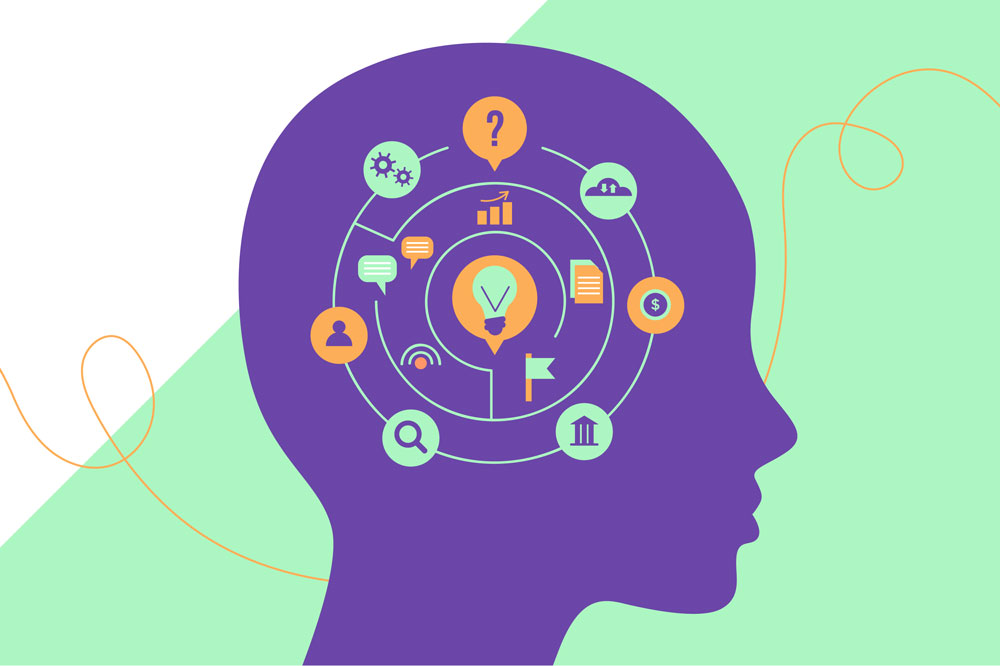Studies conducted on hundreds of legitimate businesses around the world show that approximately 85% of their success is due to investing in soft skills.
Therefore, it is obvious that we need both soft and hard skills to be successful. Hard skills are essentially the theoretical and practical specialized training required to perform any profession. We usually learn these skills in classes and courses and acquire them by reading relevant textbooks. It is currently the case that soft skills are cognitive skills, and their most important characteristic is the complexity of their assessment.
Many experts have focused on learning specialized and hard skills up to this day; of course, success in any task also requires expertise in the relevant field. However, with your soft skills such as team collaboration, group work, stress management, crisis management, adaptability, flexibility, and compatibility, you can ensure your own security and that of others in the workplace.
You have certainly encountered people in your work environment who can converse adeptly in meetings, connect with other members, and present their work with a special skill. Perhaps in many cases our ideas may be better, but it is someone who can explain their idea clearly that is the winner. Therefore, success in a professional field in today's world requires establishing connections and strengthening soft skills.
It may have been several years ago that the world of communications had not advanced to this extent, and the possession of such skills by individuals was not so necessary. People who had these abilities had only a higher standing than others. Today, with the advancement of technology and communications, having the necessary soft skills is essential for success in any endeavor.
Remember, networking and connecting with different people in the business world is the most important topic of the day for businesses!
What kinds of soft skills are there?
So far, you may have become familiar with some soft skills and generalities about them, but it is better to take a deeper look into the issue of soft skills and explore what kinds of soft skills there are. Soft skills, in essence, are the non-technical skills that encompass your behaviors and attitudes in the workplace. The primary purpose of these behaviors is to improve the quality of your work, as well as your ability to manage different situations.
A comprehensive definition of soft skills is difficult; thus, we can say that soft skills are actually abilities that are used in all areas of activity and occupations.Having skills such as the ability to communicate, manage crises and stress, be tolerant, etc. can all make you stand out from the others in your work environment.
Today, it can almost be said that all employers are looking for people who have not only strengthened their hard skills, but also their soft skills. These types of skills are transferable, and working with people who have these characteristics can lead to an improvement in the quality of work of the organization and other employees.
Some of the most essential soft skills that are essential for career progression are:
- The ability to establish effective communication
- The ability to perform group tasks
- Leadership
- The ability to solve problems and issues
Differences between soft skills and hard skills
Hard skills are specialized knowledge that can be acquired through taking courses and studying various resources. In reality, you must have the hard skills related to a particular field in order to be hired for it. For example, to work in the field of development, you need to learn the hard skills of using HTML and CSS programming languages; or if you are a graphic designer, you need to have complete familiarity with graphic tools such as Photoshop; all of these skills are hard skills.
In contrast to technical skills, your personality and character have a direct correlation. You can increase your impact in the workplace by strengthening certain qualities and abilities. Unlike hard skills, which are learned, these types of skills are completely derived from your inner feelings and perceptions. Everyone has these skills in their personality; the only thing to do is to strengthen them. The interesting point is that strengthening soft skills will be more difficult and time-consuming than learning hard skills.
Have you also asked yourself if soft skills or hard skills are more important for job success?
It should be said that it is better to be future-oriented; undoubtedly, hard skills are necessary to be hired or start a job, but over time, soft skills will make you stand out from others who have similar expertise and skills.
Recent studies have shown that 97% of employers recognize soft skills as more important than hard skills for their organization. According to these people, more than half of the new employees who fail within 18 months do so due to a lack of soft skills, not hard skills!

What skills are employers in any profession looking for?
Nowadays, employers are looking for people with both soft and interpersonal skills, as well as hard and specialized skills. Our advice to you is to strengthen the following skills in yourself in order to draw the attention of employers in job interviews and increase your chances of getting hired:
- Time Management
- Problem Solving Skills
- Creativity
- Effective Communication Skills
- Flexibility and Adaptability
- Teamwork Skills
- Work Ethic
- Attention to Detail
- Leadership
Be aware that each of the skills you have learned has subtler skills that must be strengthened in order to ultimately strengthen the main skill.
Time management is the most important attribute of job seekers
You have probably heard the term "time management" and even tried out some techniques related to it; in general, time management is the ability to use time effectively in completing tasks. No matter if you are busy doing housework or working hard in a company, if you strengthen your time management skills, you can do your tasks well and in the face of difficult and stressful activities, you can manage the situation.
In order to have effective time management skills, you must first strengthen the following sub-skills in yourself:
- Setting goals
- Effective and correct planning
- Ability to prioritize tasks
- Stress management
- Organizational ability
The skill and ability to solve problems, which is the most important skill in crisis situations
We may encounter various challenges and problems on any path we take. Only a limited number of people who encounter multiple problems in their work or life can find the best solution in a crisis situation. These are the same people who have strengthened their problem-solving skills; to further strengthen this skill, you must first strengthen the following skills:
- Ability to analyze conditions
- Finding logical arguments
- Observing accurately and objectively without injecting personal opinion and beliefs
- Thinking storm
- Decision making
Creativity is the most influential skill on the outcome of tasks
You probably, like many others, associate creativity with design and art; but remember that creativity is a broad topic that can be effective in any field. You can get the best results from your work by being different from others and having the creativity to create such a difference.
To enhance your creativity in the workplace, first strengthen these skills within yourself:
- Thinking outside the box
- Mapping out mental models
- Innovation
- Having fresh and novel ideas
- Ability to experiment
- Questioning and problem solving
Effective communication is an important factor in team popularity and success in group tasks
We are all attracted to individuals who can establish effective connections with other team members.In every organization and team, there are people who can effectively communicate their ideas in meetings, express their opinions, and openly express their feelings about events and topics.
To strengthen your communication skills, enhance the following aspects of your personality:
- Create verbal communication
- Create written communication
- Present ideas
- Provide feedback
- Listen actively
Be sure to have the ability to establish a fine line between gossiping and giving extra or sincere opinions.

Adaptability and flexibility skills in various work environments
Having social compatibility is one of the features that comes into play in all stages of life and situations; however, having this feature in work environments is considered an unparalleled advantage. This skill demonstrates your ability to adapt to unfamiliar changes and situations and to adjust to the conditions. Be aware that organizations may make changes to their employee policies and conditions over time, so you must be able to quickly adapt to new conditions and abide by new rules.
To strengthen your conflict resolution skills, first work on strengthening the following individual skills:
- Self-management
- Positive thinking
- Ability to maintain calm
- Analytical skills
- Self-motivation
Teamwork skills
Today, due to the development of start-ups and new businesses, the importance of teamwork and team presence has grown. Therefore, in today's professional world, you must have the ability to perform group tasks and be recognized as an effective individual in a team. The most important teamworking skills are:
- Ability to manage conflicts
- Ability to collaborate with others
- Coordinating with team members
- Ability to exchange ideas
- Ability to mediate
Having good work ethics is the most sought-after skill by employers
One of the most important skills employers look for in interviews is their work ethic. Work ethic, in general, is defined as the level of value and importance that each person places on completing tasks in order to achieve desired results. It is evident that having such special qualities in employees can be counted as one of the most fundamental assets for any organization. Soft skills related to work ethics include:
- Accountability
- Discipline
- Reliability
- Commitment
- Professionalism
Pay attention to the essential details for success at work
Being detail-oriented in important and large projects allows one to effectively handle delegated tasks and deliver them with the highest accuracy and best results. Pay attention to details so that the likelihood of any errors, mistakes, and rework for the team members is minimized.
Related skills include:
- Effective planning
- Introspection
- Attention to detail
- Analytical thinking and questioning
- Critical thinking
Management and leadership ability
The ability to manage and lead is the same as the ability to teach and guide team members, which is highly valued by employers; because employees with leadership skills often demonstrate more initiative and dedication than others do. On the other hand, these people may also receive managerial positions in the future. Skills related to leadership:

- Management skills
- Credibility
- Mentoring ability
- Being empathetic
- Having a high cultural intelligence
In the end...
As you can see, soft skills are essential for having high performance and success in any job; therefore, strengthening these skills is one of the most basic things to do in order to be employed by reputable global companies. The presence of experienced consultants in the GandoTech educational group and the availability of courses make it possible for you to become very familiar with these skills and strengthen them within yourself.
What do you think is the most important soft skill that is recognized as key to entering the professional world?
good
You can also write your opinion: